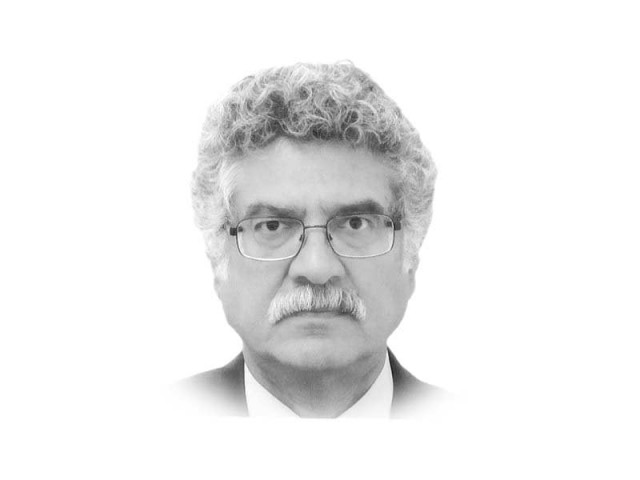Unrealistic expectations
Washington continues to view relations with Islamabad through the prism of Afghanistan

The writer is a former Ambassador of Pakistan. The views expressed here are his own
Given Trump’s mercurial behaviour, what he stated may not translate into a real change in policy towards Pakistan. Trump also qualified his remarks by repeating the same allegations about Pakistan’s sanctuary and help to the Afghan Taliban. Moreover, the offer of engagement with Pakistan was qualified by the positive outcome of the US-Taliban talks being facilitated by Pakistan — an outcome which is by no means certain. This indicates that Washington continues to view relations with Islamabad through the prism of Afghanistan and not on the basis of relations with Pakistan in and of itself.
Our Prime Minister should also resist the temptation, which his predecessors did not, of accepting a meeting with the American President as a “reward” in itself — a meeting devoid of any substantive outcome for Pakistan. This has been a usual American tactic mainly reserved for light-weight leaders who can be fobbed off with an Oval office photo-opportunity. Any meeting with Trump must lead to concrete results otherwise it would not be worth the effort.
More importantly, our expectations from the US must be shaped by existing realities. This raises the question whether the US values relations with Pakistan only as a means of attainting its objectives in Afghanistan? After 17 years of military failure in Afghanistan, for which Pakistan has been used as a scapegoat, the Americans again need us to get a face-saving exit from their Afghan quagmire. But, as Prime Minister Imran Khan has himself stated recently, there is no American appreciation for the price Pakistan has paid for America’s Afghan misadventure, with over 75,000 dead and nearly 175 billion dollars in costs — far more than American casualties in Afghanistan or the sum total of US aid to Pakistan.
Continuing American discrimination against Pakistan over the nuclear issue also remains a major unresolved irritant in the bilateral relations. While India’s conventional and strategic military build-up is being actively assisted by the US in order to contain China, Washington has consistently questioned Islamabad’s efforts to ensure its security against India. Consequently, Pakistan is being asked to freeze its allegedly “fastest growing” nuclear weapons programme as well as its missile capabilities. These differences are unlikely to be resolved in the foreseeable future.
Moreover, the evolving global geo-political environment poses new challenges for Pakistan-US relations. The growing China-America rivalry has overturned Pakistan’s position as an ally of both countries during the Cold War years. Even worse, it has led to America’s strategic partnership with India as a means to contain and confront China, which imperils Pakistan’s security. China’s efforts to avoid US encirclement through its Belt and Road Initiative, of which CPEC is an integral part, puts Pakistan at odds with American strategic interests. Not surprisingly, Pakistan’s relations with China and CPEC in particular are emerging as contentious issues in Pakistan-US relations.
In this challenging global environment characterised by a convergence in US-India relations but a growing divergence in the Islamabad-Washington equation, Pakistan’s focus must be to diversify and consolidate its foreign policy options. Most importantly, it must further strengthen strategic partnership with China for which successful implementation of CPEC, despite American and Indian opposition, must be ensured. The current environment also provides unprecedented opportunities for deepening relations with Russia which is closely allied to China against the US. Ironically, a deepening of our relations with Beijing and Moscow would also persuade Washington that Pakistan has other options and thereby encourage a more cooperative American approach towards us.
With the US, it remains in our immediate interest to facilitate a political settlement in Afghanistan but such an outcome must also serve Pakistan’s interests in terms of ending Indian use of Afghan territory to promote terrorism in Pakistan, recognition of Pakistan’s security interests in Afghanistan, return of Afghan refugees and removal of US sanctions. We have the leverage to attain this, given the American reliance on Pakistan, not just for the dialogue with the Taliban but also due to the air and ground access we provide to the US for its presence in Afghanistan.
In the purely bilateral context over the longer term, there is also room for improvement, especially in the economic and commercial fields, given Pakistan’s geo-political location, the size of its population and the potential of its economy. For both sides, a major task would be to improve their respective images in each other’s countries. A concerted effort must also be made to reduce mutual suspicions and build trust. While Pakistan should not seek US aid, both sides should look for ways to promote bilateral trade. A key area of cooperation for Pakistan to develop would be education, especially in science and technology. That said, it will still be important not to entertain any unrealistic expectations from the US.
Published in The Express Tribune, January 10th, 2019.
Like Opinion & Editorial on Facebook, follow @ETOpEd on Twitter to receive all updates on all our daily pieces.















COMMENTS
Comments are moderated and generally will be posted if they are on-topic and not abusive.
For more information, please see our Comments FAQ